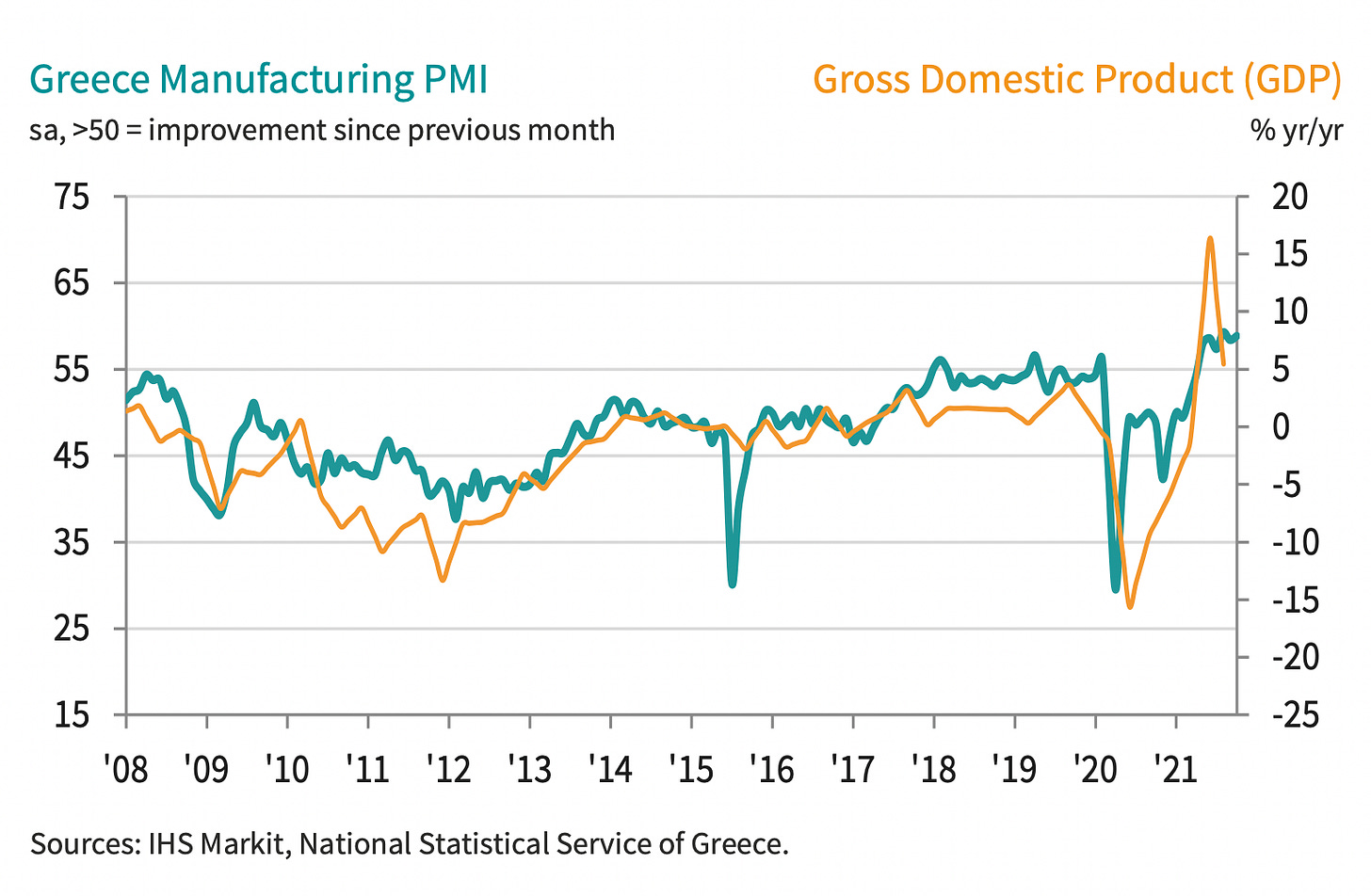Macro roundup: New schedule
This week's roundup would be more roundup-y than ever (if there were more to round up)
Earlier this week, I wrote a post taking a look at some of the data underpinning the slow rate of credit growth in Greece. That post marked a shift to a twice-a-week publishing schedule. These macro roundups will continue to go out on Fridays, with a section for the following week’s agenda and (most of the time) a look at interesting things elsewhere on the web. But the focus on Greece’s macroeconomic data in the week just gone by will usually be briefer and more just a summary.
More in-depth looks at particular topics will come from the other weekly posts, like this one from Wednesday:
Data summary
Onto this week’s data … and it’s been a quiet week for Greek macroeconomic data releases, so there’s not all that much to round up.
The biggest headline data release of the week is the purchasing managers’ index, which rose to 58.9 in October from 58.4. Any reading above 50 indicates improved manufacturing conditions, and the latest survey data is near the strongest in 22 years of collection, according to IHS Markit. There’s no let-up in supply shortages.
Greece’s trade balance in September deteriorated to 2.1 billion euros, compared with 1.6 billion euros a year earlier. Imports rose 37 percent to 5.8 billion euros, while exports increased 43 percent to 3.7 billion euros.
If you’re enjoying this newsletter, consider sharing it with others who might also like it.
Next week’s key data
Wednesday, Nov. 10:
October consumer price index (Elstat)
September industrial production (Elstat)
Friday, Nov. 12:
August building activity (Elstat)
Elsewhere on the web
The Bruegel think tank has an incredible dataset on EU member-states’ national recovery and resilience plans (this has been up since summer, but I somehow missed it until this week). This is a fantastic resource, which I for one am very grateful to them for.
The New York Times on the energy transformation of Greece’s islands. (If you have a subscription with them or some free articles left, you can enjoy the nice photos by Eirini Vourloumis. Otherwise, you can also find the piece here.)
I really like this piece by Ryan Avent on labour shortages, automation, productivity and whether the current conditions have debunked the argument for a universal basic income (personally, I think they have actually strengthened the argument — even if it’s not likely to happen any time soon).
On what you shouldn’t do when reporting how an “average” family experiences inflation in the price of milk.
Disparities on measured income between tax and survey data mostly just comes from the very top of the distribution.
How a Corfu “ghost village” came back to life.
I’d love to get your thoughts and feedback, either in the comments, on Twitter or by reply if you received the newsletter by email. If you’re not subscribed yet, consider doing so now.



